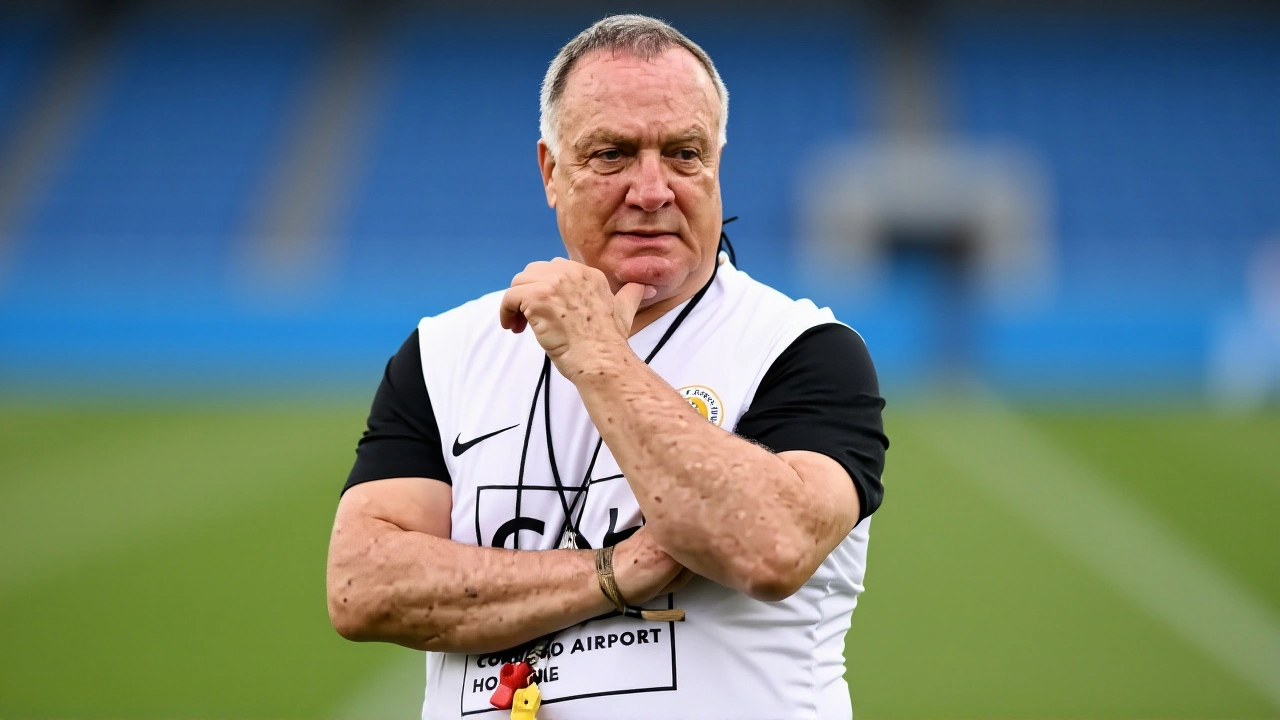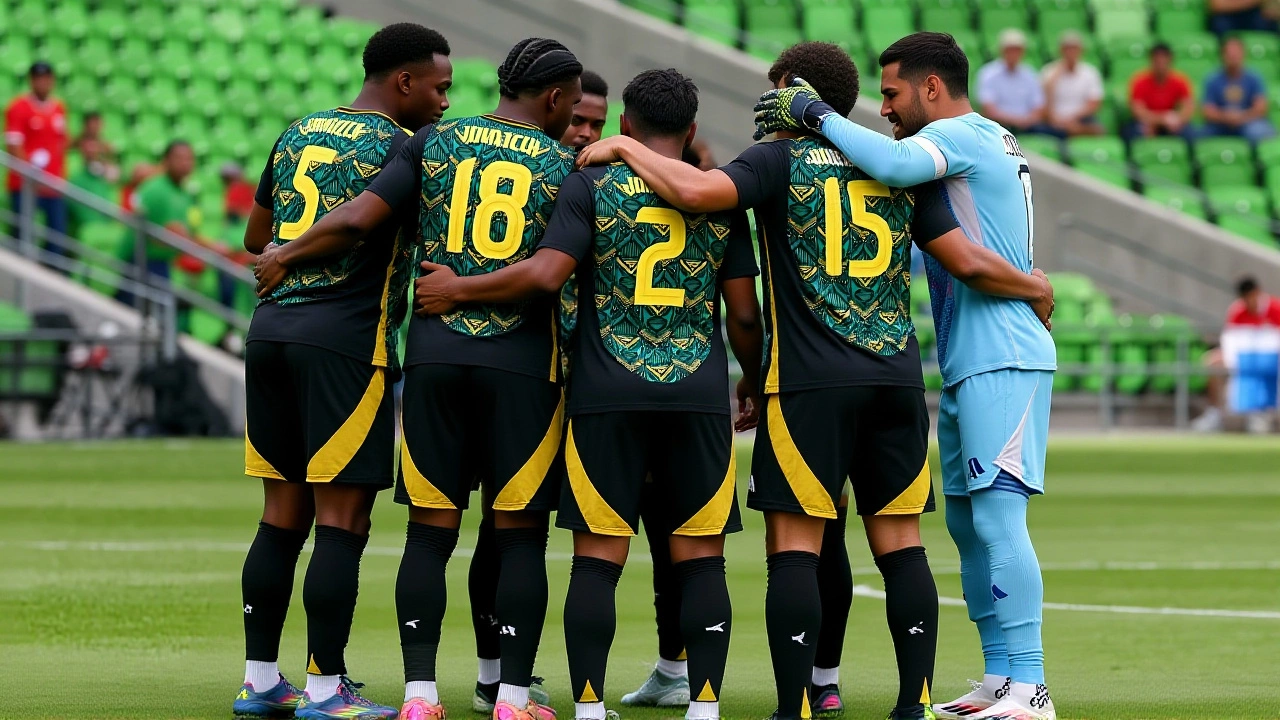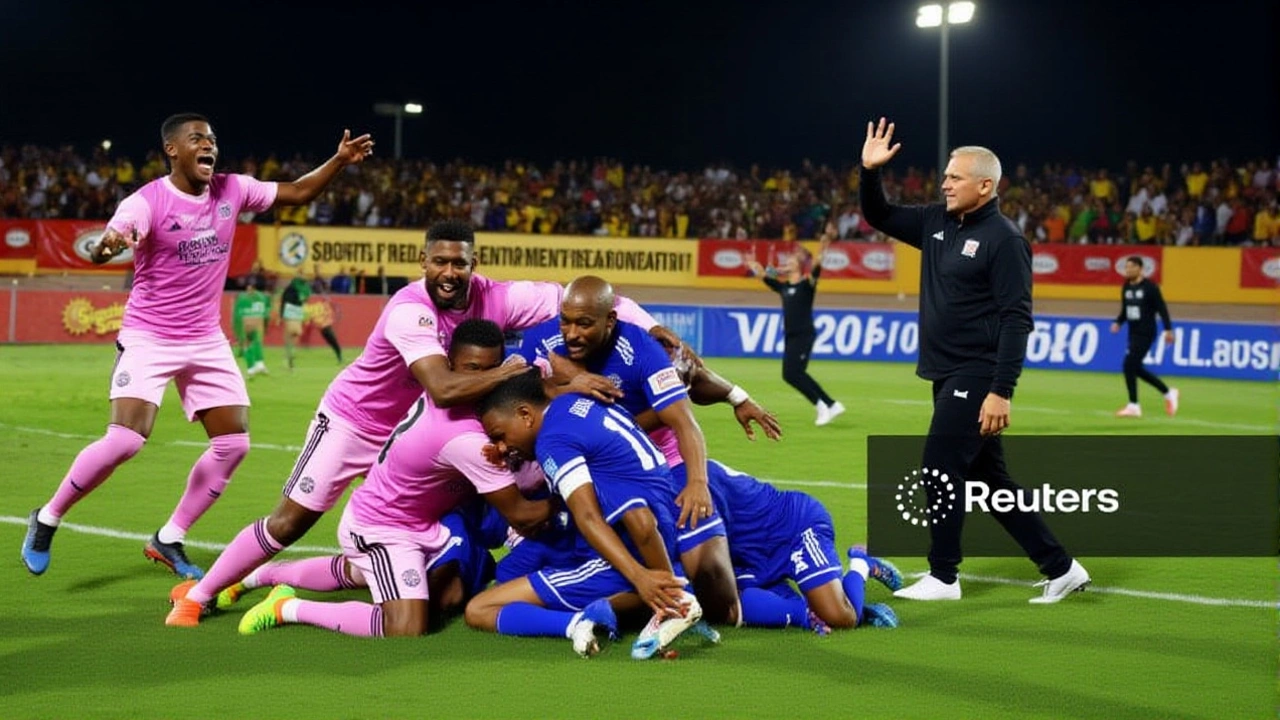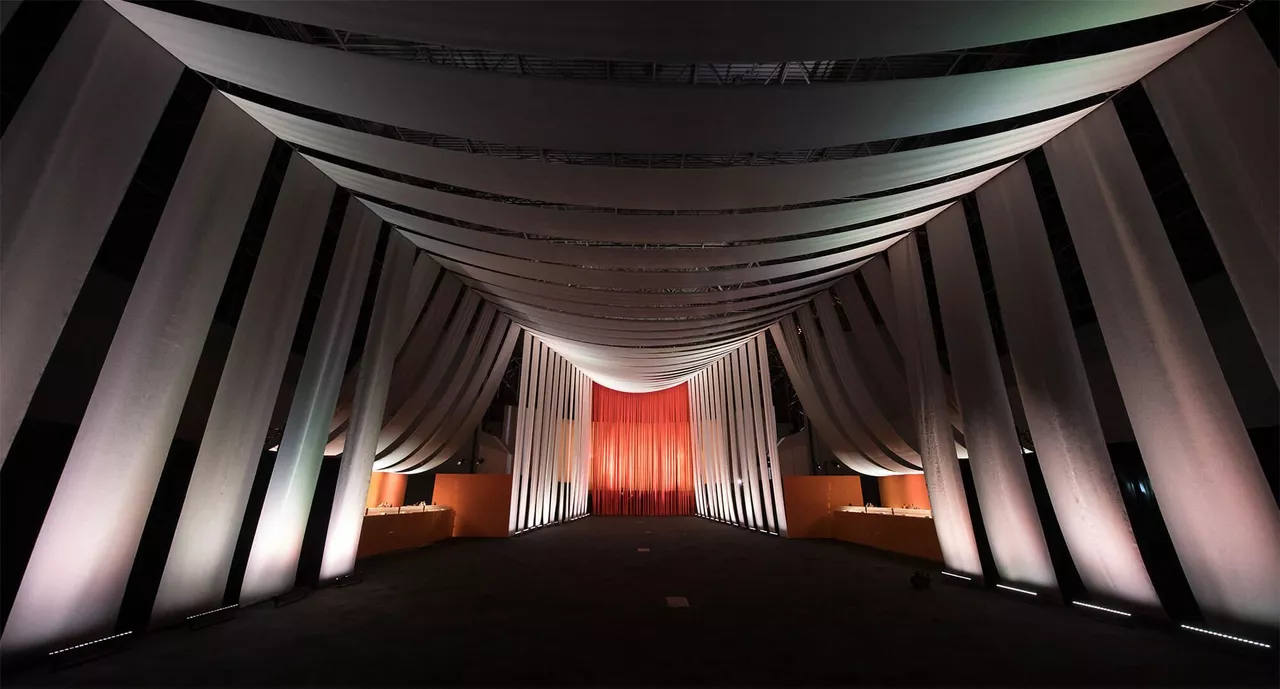On November 19, 2025, in the rain-slicked silence of Kingston’s National Stadium, Curaçao didn’t score a goal — but they made history anyway. A 0-0 draw against Jamaica, sealed by a last-gasp clearance from defender Abyspo, sent the tiny Caribbean island nation to the 2026 FIFA World Cup as the smallest sovereign nation ever to qualify for a men’s tournament. With a population of just 165,000, Curaçao’s achievement isn’t just a fluke. It’s a revolution in football logic. The final whistle blew at 6:20 AM UTC, and for a moment, the entire island held its breath — then exploded.
A Nation That Refused to Be Overlooked
Curaçao’s journey to this moment wasn’t paved with star power or massive budgets. It was built on grit, tactical discipline, and the quiet genius of Dick Advocaat, head coach. The Dutch veteran, who once led the Netherlands to Euro 2000 and managed PSV and Rangers, took over a team that had never won a World Cup qualifier in its history. He didn’t bring flashy tactics. He brought structure. He brought belief. And on this night, he brought the World Cup. The match itself was a masterclass in containment. Jamaica, needing a win to stay alive, dominated possession. But every time they pushed forward, Curaçao’s defense held firm. Andre Blake, Jamaican goalkeeper, was magnificent — tipping a 382nd-second strike from forward Floron over the bar with a fingertip save that looked like something out of a video game. But even Blake couldn’t break through Curaçao’s wall.The Moment That Changed Everything
Then, at the 466th second of the broadcast — 86 minutes in — John Russell, Jamaica’s rugged central defender, caught a 50/50 challenge with Curaçao’s Loadia and received his second yellow card. The crowd gasped. The Jamaican bench buried their faces in their hands. Suddenly, the underdogs had the advantage. Jamaica poured forward. Curaçao retreated. The ball bounced wildly in the box. A looping header from Jamaica’s Pinnick came down like a falling star. And there, in the middle of the penalty area, stood Abyspo. He didn’t try to be fancy. He didn’t try to win it. He just got his head on it — high, hard, and clean — sending the ball skyward into the stands. The referee blew. The scoreboard stayed 0-0. The fans in Kingston stared. The fans in Willemstad screamed. As the CBS Sports Golazo America broadcast put it: “Pinnick settles on the bounce, hoops it high into the sky into the area. Abyspo gets the header out. Kurissau have done it. A blue wave is heading to the World Cup.”
The Ripple Effect: Smallest, But Not Forgotten
Curaçao isn’t just small. It’s the smallest nation ever to qualify. By population, it’s smaller than many U.S. towns. Its national team doesn’t have a full-time training base. Its players are scattered across Europe — in the Dutch second division, in Belgium’s lower leagues, even in Iceland’s amateur circuits. They play for pride, not paychecks. And yet, they beat the odds. This isn’t just a feel-good story. It’s a challenge to the football establishment. FIFA’s qualifying system, often criticized for favoring wealthier nations, just had its most powerful rebuttal yet. Haiti, too, qualified — ending a 36-year wait — but Curaçao’s achievement is more astonishing. Haiti has over 11 million people. Curaçao has less than the population of a single American suburb. The 2026 FIFA World Cup will be held across the U.S., Canada, and Mexico. But before that, Curaçao must survive the interconfederation playoff — scheduled for March 2026 in Guadalajara and Monterrey, Mexico. They’ll face Uzbekistan, Jordan, and Cape Verde for one of the final two spots. No one expects them to win. But no one expected them to get here either.
What Comes Next? The Legacy of Blue
The island’s government has already announced plans to build a new national academy in Willemstad. Local schools are adding World Cup-themed curriculums. Merchandise sales have spiked 700% in 48 hours. And for the first time, Curaçao’s youth teams are being scouted by clubs in the Netherlands, Belgium, and even England. This isn’t just about football. It’s about identity. For decades, Curaçao was seen as a footnote — a Dutch Caribbean island known for rum and beaches, not world-class athletes. Now, it’s a symbol. A reminder that passion, organization, and belief can overcome size, wealth, and history. As Advocaat said in his post-match interview: “They didn’t have the biggest names. But they had the biggest hearts. And sometimes, that’s enough.”Frequently Asked Questions
How did Curaçao qualify for the World Cup with only a draw?
Curaçao finished second in CONCACAF Group B with 11 points from six matches — one point ahead of Jamaica. A 0-0 draw was enough because Jamaica needed a win to overtake them. Even with 10 men in the final minutes, Jamaica couldn’t score, and Curaçao’s defensive resilience secured their place. Their previous wins over Suriname and Bermuda, combined with Jamaica’s two draws in the final two matches, sealed the deal.
Who is Dick Advocaat and why is his role so important?
Dick Advocaat is a Dutch football legend with decades of top-level experience, including managing the Netherlands national team and clubs like PSV and Rangers. He took over Curaçao in 2023 with the mission to professionalize their setup. He introduced structured training, video analysis, and mental conditioning — tools rarely used at this level. His calm leadership turned a group of part-time players into a disciplined unit capable of holding off stronger teams.
What’s the significance of the interconfederation playoff?
The interconfederation playoff in March 2026 pits Curaçao against Uzbekistan (Asia), Jordan (Asia), and Cape Verde (Africa) for one of two final spots in the 2026 World Cup. It’s a brutal gauntlet — no easy opponents. But Curaçao has nothing to lose. Their journey so far proves they can compete with giants. A win here wouldn’t just mean a World Cup ticket — it would rewrite the narrative of what’s possible in global football.
Why is Curaçao’s population so relevant to this story?
With only 165,000 residents, Curaçao is smaller than cities like Miami Beach or Long Beach, California. No nation with such a tiny population has ever qualified for a men’s World Cup. For context, the previous smallest was Iceland (340,000) in 2018. Curaçao’s achievement shatters that record — making their qualification not just historic, but statistically improbable. It proves football success isn’t tied to population size.
What happened to John Russell’s red card — was it justified?
John Russell’s second yellow card came in the 86th minute after a high tackle on Curaçao’s Loadia. Replays showed contact with the shin, but no excessive force. Many analysts argued it was a 50/50 challenge — and that the referee was overly strict. However, Russell had already received a yellow earlier for a foul on Floron. FIFA’s rules require a red for a second caution, regardless of severity. The decision was correct under the letter of the law, even if controversial in spirit.
How does this affect other small nations in CONCACAF?
Curaçao’s success is a blueprint. Nations like Suriname, Guyana, and the British Virgin Islands now see a path forward. CONCACAF’s new qualifying format rewards consistency over star power. Small teams can now focus on defensive solidity, home-field advantage, and long-term development. FIFA has already noted Curaçao’s achievement as a model for grassroots investment. Expect more funding and technical support for micro-nations in future cycles.






